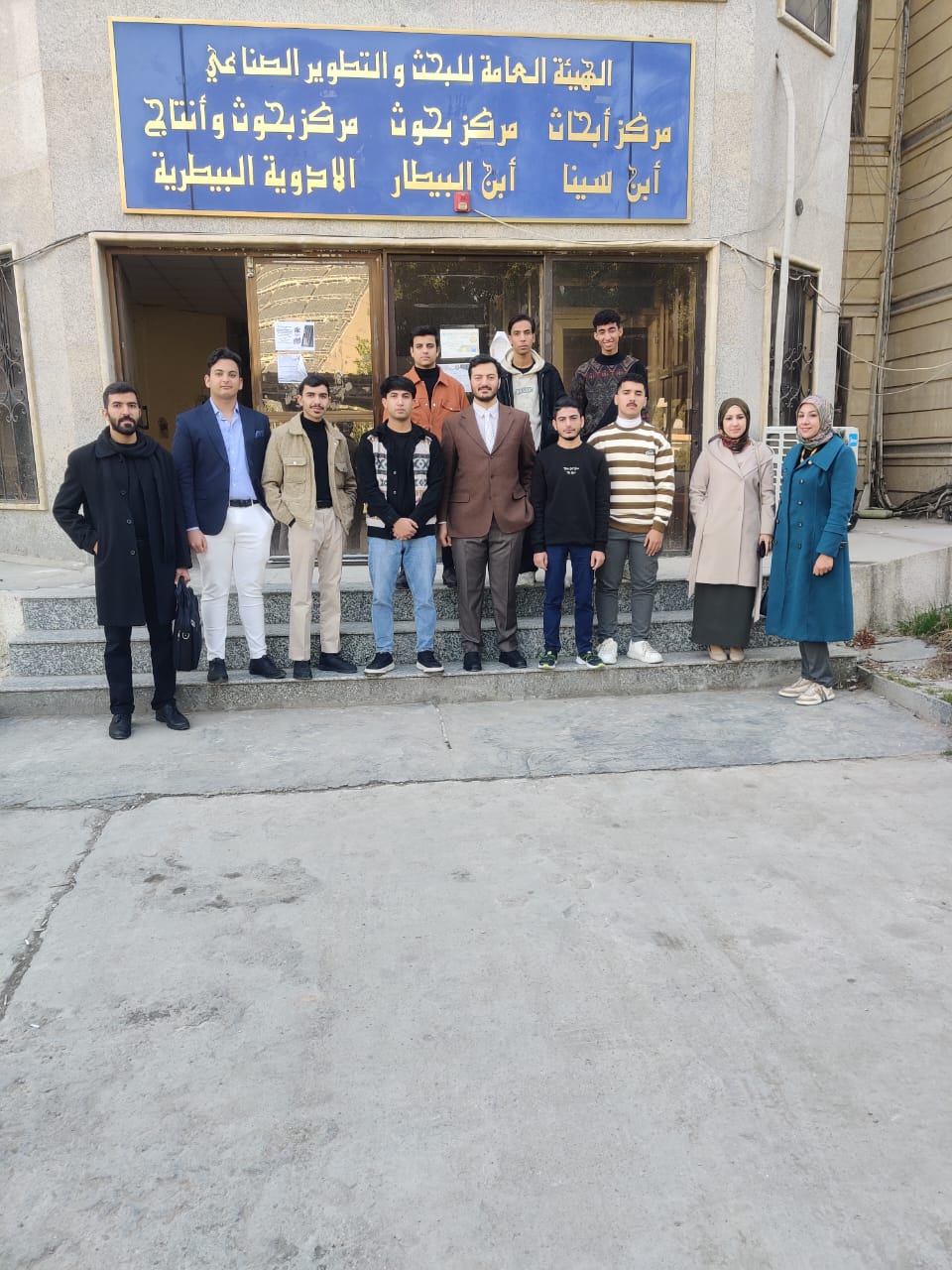Visitors: 28527173 Views
Done By: Chemical Engineering Department
Post Date: 2025-01-19
Last Browse: 2025-09-14

The Department of Chemical Engineering organized a scientific visit for first-year students to the General Authority for Industrial Research and Development, affiliated with the Ministry of Industry and Minerals, on Sunday for the morning shift and Tuesday for the evening shift, corresponding to January 19 and 21, 2024. The visit was accompanied by a group of faculty members from the department. During the trip, students visited the following centers within the authority and were introduced to the uses of the most important devices and their operating methods: Nanotechnology Center: In this center, students learned about the uses of nanoparticles and how properties such as melting point and electrical conductivity can be altered at the nanoscale. They were also introduced to devices such as the Scanning Electron Microscope (SEM), X-ray Diffraction (XRD), and Atomic Force Microscope (AFM). Fuel Technology Center: Students became familiar with the most important tests conducted on oils and petroleum derivatives, such as measuring oil viscosity, and learned about the Freezing device used for testing aircraft fuel freezing points. Other devices introduced included the Softening Point device, Oxidation Stability device, Breakdown device, and the X-ray Sulfur Meter. Ibn Al-Bitar Research Center: This center provided students with an introduction to some key laboratory testing devices, such as the UV spectrophotometer for measuring absorption, transmittance, and concentration, the FTIR device used for chemical compound identification, the HPCL for separating, identifying, and measuring concentrations of substances, and the GC Mass device used for analyzing volatile substances like solvents. Iraqi Corrosion Center: Students learned about the key procedures for controlling external corrosion through insulating coatings and cathodic protection systems in both types, as well as internal corrosion control using various corrosion inhibitors, including those derived from plants. They were also introduced to the most important devices used in this field. Through these diverse scientific visits, the Department of Chemical Engineering aims to bridge the gap between theoretical knowledge and practical application, equipping students with the essential scientific skills that will enable them to serve both the public and private sectors after graduation.